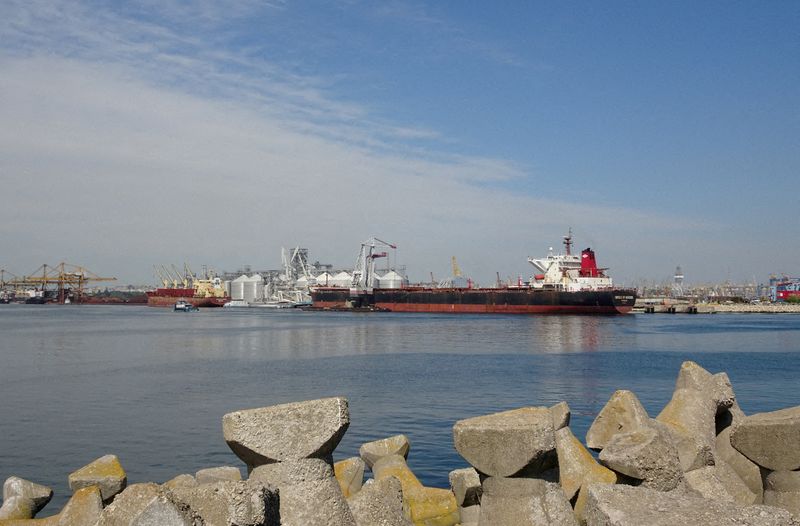By Julia Payne and Yuliia Dysa
BRUSSELS/KYIV (Reuters) -A dispute over agricultural trade created a rift on Monday between Ukraine and some of its strongest allies in the European Union after three member states imposed unilateral measures to restrict imports from the war-torn country.
Poland, Slovakia and Hungary announced restrictions on imports on Friday after the European Commission decided not to extend a ban on sales into Ukraine's five EU neighbours, which also include Romania and Bulgaria.
Ukraine retaliated by filing complaints on Monday with the World Trade Organization (WTO) against Poland, Slovakia and Hungary, while other EU members condemned the unilateral moves.
Spain's agriculture minister on Monday said the bans seemed illegal while his French counterpart said they called European solidarity into question.
Poland, with a parliamentary election looming in October, distanced itself even further and withdrew from a coordination platform - a group including the five neighbours, Ukraine and the European Commission - that has been looking at solutions to boost Ukraine grain transit to global markets.
"We have to look forward, since Ukraine said it wants to sue Poland ... every comment we would have made on this platform could be used against us," Poland Agriculture Minister Robert Telus told reporters in Brussels.
For much of the last year, some 60% of Ukrainian grain has transited through the five EU countries using so-called Solidarity Lanes as an alternative to the Black Sea due to Russian threats.
Like most countries in central and eastern Europe, Poland and Slovakia have been some of Kyiv's strongest allies in its fight against Russia's invasion that began in February 2022. Hungary's stance has been more ambivalent, as the only member of the EU and NATO alliance to maintain close relations with Moscow, still the main source of its oil and natural gas.
But grain exports have been an area of friction throughout the region.
EXPORTS DISRUPTED
Ukraine's war with Russia has disrupted its ability to export agricultural products through its Black Sea ports, leading to a surge in shipments via road, rail and barge through its five EU neighbours.
Farmers in those countries protested these shipments were distorting local markets, leading the EU to approve trade restrictions - while still allowing transit - until Sept. 15.
Spain's agriculture minister Luis Planas Puchades said it was up to the European Commission to judge whether the unilateral bans have broken any laws, but said the measures seemed illegal.
France's agriculture minister, Marc Fesneau, was also critical of the measures.
"For solidarity there needs to be unity... We must keep hold of the two elements, otherwise the European project is at risk. The single market is a fundamental element," he said.
Romanian Prime Minister Marcel Ciolacu said on Monday his country would look to extend a trade ban on Ukrainian grain for 30 days if import requests rise.
Ciolacu said Romania had not seen requests to import grain from Ukraine since Friday and did not want a repeat of the situation earlier this year that impacted Romanian farmers.
"The Ukrainian prime minister promised to send the export licensing proposal today, which we will discuss," Ciolacu said.

"If there will be export requests to Romania I will ask the agriculture and economy ministers to draft an order extending the ban for a period of 30 days until things are clarified."
The Bulgarian parliament voted to lift its ban on Ukrainian grains last week.